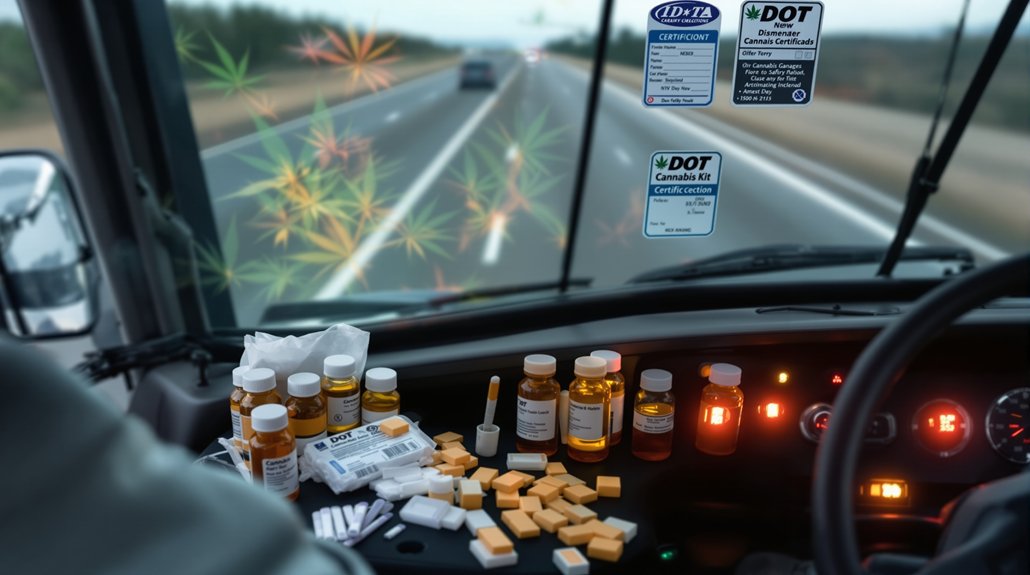The American Trucking Associations has issued urgent warnings to federal regulators about potential safety risks stemming from the proposed rescheduling of cannabis from Schedule I to Schedule III. The organization fears that such a move could undermine mandatory drug testing programs for commercial drivers, compromising highway safety protections that have been in place for years.
ATA has formally urged the Department of Transportation to clarify whether current testing authority will remain intact if cannabis shifts to Schedule III status. The association emphasizes that safety-sensitive transportation workers must continue facing rigorous drug screening requirements, regardless of marijuana’s evolving legal classification. Without explicit federal safeguards, the removal of existing drug testing guidelines could eliminate a vital layer of highway safety protection.
The regulatory shift presents significant challenges for drug testing protocols across the trucking industry. The alteration may restrict DOT’s ability to mandate cannabis testing, as current policies rely heavily on HHS Drug Testing Guidelines that specifically target Schedule I substances. This unclear regulatory landscape threatens to delay or complicate employer enforcement of drug-free workplace policies, creating potential compliance headaches for carriers nationwide.
The proposed cannabis rescheduling could severely disrupt established drug testing protocols, creating widespread compliance uncertainty for trucking carriers.
Data from the FMCSA Clearinghouse reveals that marijuana accounts for the majority of drug violations among commercial drivers, highlighting the substance’s prevalence in the industry. The March 2025 clearinghouse summary shows stable or increasing positive test results, reinforcing ATA’s concerns about maintaining robust testing standards. Meanwhile, employers continue lacking access to hair testing for marijuana due to stalled federal regulatory guidance, limiting their detection capabilities. Federal cannabis rules contribute to a trucking driver shortage due to the zero-tolerance drug policy enforced by the Department of Transportation.
The broader regulatory environment remains unsettled, with DEA leadership treating cannabis rescheduling as a high-priority agenda item while Senate and House discussions continue regarding post-prohibition regulations. This uncertainty creates mixed signals from federal agencies and Congressional committees, leaving stakeholders struggling to understand future compliance requirements.
ATA has launched a thorough advocacy campaign, sending multiple public letters to DOT and Congress expressing “deep concern” over potential safety risks. The organization emphasizes that its position focuses purely on public safety rather than supporting or opposing legalization efforts. Their messaging consistently calls for research-based, precautionary approaches to cannabis-related regulatory changes.
The association supports proposed legislation like H.R. 4320, which would expand drug testing methods and reporting capabilities. ATA seeks multi-stakeholder engagement involving regulators, carriers, law enforcement, and legislators to address these complex challenges.
Industry-wide concerns persist about distinguishing recent cannabis use from actual impairment, a challenge that extends beyond trucking to other safety-sensitive sectors including aviation and pipeline operations.





